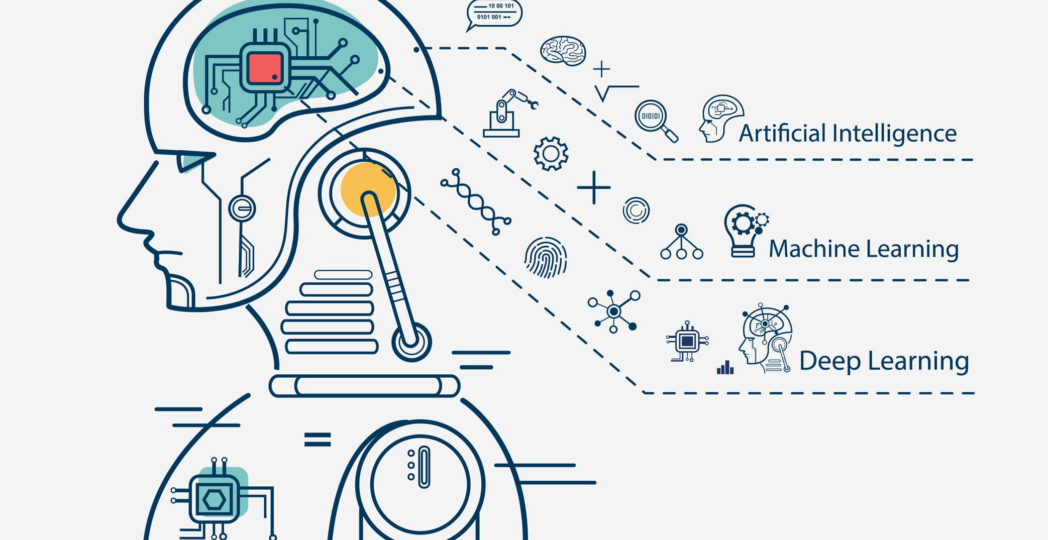Artificial Intelligence (AI) is one of the most in-demand and fast-growing fields today. If you’re new to AI, this guide will help you navigate the learning process and develop essential skills that will make you competitive in 2024 and beyond.
1. Build a Strong Foundation
AI relies heavily on math, statistics, and programming. As a beginner, start with the fundamentals:
- Mathematics: AI often involves concepts from calculus, linear algebra, and probability. Familiarize yourself with topics like differentiation, matrices, and probability distributions to understand how algorithms work.
- Programming: Learn programming languages commonly used in AI, such as Python, R, and Java. Python is the most popular language for AI because of its simplicity and the availability of AI-focused libraries like TensorFlow, PyTorch, and Keras.
- Statistics: AI is data-driven, and a strong understanding of statistics will help you analyze data, identify patterns, and build predictive models.
2. Understand AI Concepts
Before diving into the technical aspects, it’s essential to grasp the key concepts in AI:
- Machine Learning (ML): Machine learning is a subset of AI where systems learn from data and make decisions without being explicitly programmed. Familiarize yourself with supervised, unsupervised, and reinforcement learning.
- Neural Networks: Understand how neural networks work, as they form the basis for many advanced AI systems. Topics like backpropagation, deep learning, and convolutional neural networks (CNNs) are critical here.
- Natural Language Processing (NLP): NLP allows computers to understand and process human language. If you’re interested in working with text-based data (like chatbots or translation tools), NLP is a must-learn area.
3. Start Learning AI Tools and Platforms
As you get deeper into AI, you’ll need to become proficient with tools and platforms used in the industry. Some popular ones include:
- TensorFlow: A popular open-source library for building AI models, particularly deep learning models.
- PyTorch: Another widely-used library, PyTorch is known for its flexibility and ease of use in research and production.
- Jupyter Notebooks: These are a go-to environment for writing Python code, running simulations, and visualizing AI model outputs.
Many platforms, like Google Colab, allow you to run AI models directly in the cloud without needing powerful local hardware.
4. Engage in Hands-On Projects
Learning AI isn’t just about reading books or taking courses—you need hands-on experience. Begin by working on simple projects, then gradually increase the complexity. Here are a few project ideas to start:
- Image Classification: Train a model to recognize objects in images using CNNs.
- Chatbot Development: Create a simple chatbot using NLP libraries like NLTK or spaCy.
- Predictive Analytics: Use machine learning to forecast stock prices or predict customer behavior from historical data.
Projects not only reinforce your skills but also build a portfolio you can showcase to potential employers.
5. Join AI Communities and Stay Updated
AI is a fast-evolving field, so it’s crucial to stay updated on the latest advancements and trends. Join AI communities like:
- Kaggle: Participate in AI competitions and access a wealth of datasets.
- Reddit (r/MachineLearning): Discuss AI topics and share resources with a broader community.
- GitHub: Contribute to AI open-source projects or browse the latest AI tools and libraries.
By staying engaged in these communities, you’ll gain insights into cutting-edge research and practical applications in the industry.
6. Consider Formal Education
While self-teaching is a viable route, formal education can give you a more structured approach to learning AI. Consider pursuing:
- Online Courses: Platforms like Coursera, Udacity, and edX offer AI-specific programs, some with certifications.
- AI Boot Camps: These are immersive programs that provide a fast track to gaining practical skills in AI.
- University Degrees: For a comprehensive education, consider an AI-focused degree or a master’s program in machine learning, data science, or computer science.
7. Prepare for AI Careers in 2024
The demand for AI professionals is skyrocketing across various industries like healthcare, finance, education, and robotics. Roles like data scientists, AI engineers, machine learning engineers, and AI researchers are especially sought after. As you learn, focus on the skills and tools most relevant to the career path you want to pursue.
Unlock the Future of AI with Asia Tech Academy (ATA)
Artificial Intelligence (AI) is transforming the world, from revolutionizing industries to reshaping everyday tasks. At Asia Tech Academy (ATA), we’re here to help you tap into this dynamic field and gain skills that are in demand globally.
Why Learn AI at ATA?
At ATA, we believe that learning AI should be accessible and engaging. Our programs are designed for both beginners and those looking to advance their skills. With our expert instructors, hands-on projects, and real-world applications, you’ll be able to:
- Understand the fundamentals of AI and machine learning
- Explore how AI is used in industries like healthcare, finance, and education
- Develop and train your own AI models
- Work on projects that give you a portfolio of experience
- Learn in a flexible environment—study just 2 hours a day!
Get Ready for the Future
AI is not just a technology of tomorrow—it’s already shaping the way we live and work. Whether you’re a student, a professional, or simply curious about AI, ATA’s courses will give you the knowledge and confidence to succeed in this exciting field.
Join us at Asia Tech Academy and start your journey into AI today!
How Long Does It Take to Learn AI?
The time it takes to learn artificial intelligence varies depending on several factors:
- Prerequisite Knowledge: If you already have a solid understanding of math, statistics, and basic programming, you can jump straight into AI skills and tools. Without this foundation, however, it might take additional time to learn these fundamentals before diving into AI.
- Career Intent: Your learning path will depend on your end goal. If you’re aiming for a career in AI, such as becoming a data scientist or machine learning engineer, you’ll need a more comprehensive education, which can take several months or years. On the other hand, if you’re looking to enhance your current role, like adding AI knowledge to your data analytics skills, you may be able to focus on specific topics and finish in a shorter time frame.
- Background Knowledge: Those transitioning from unrelated fields may need more time to learn AI compared to individuals already working in technology. The complex jargon, technical concepts, and tools involved in AI will be easier to grasp if you’re familiar with areas like computer science, programming, or data analysis.





